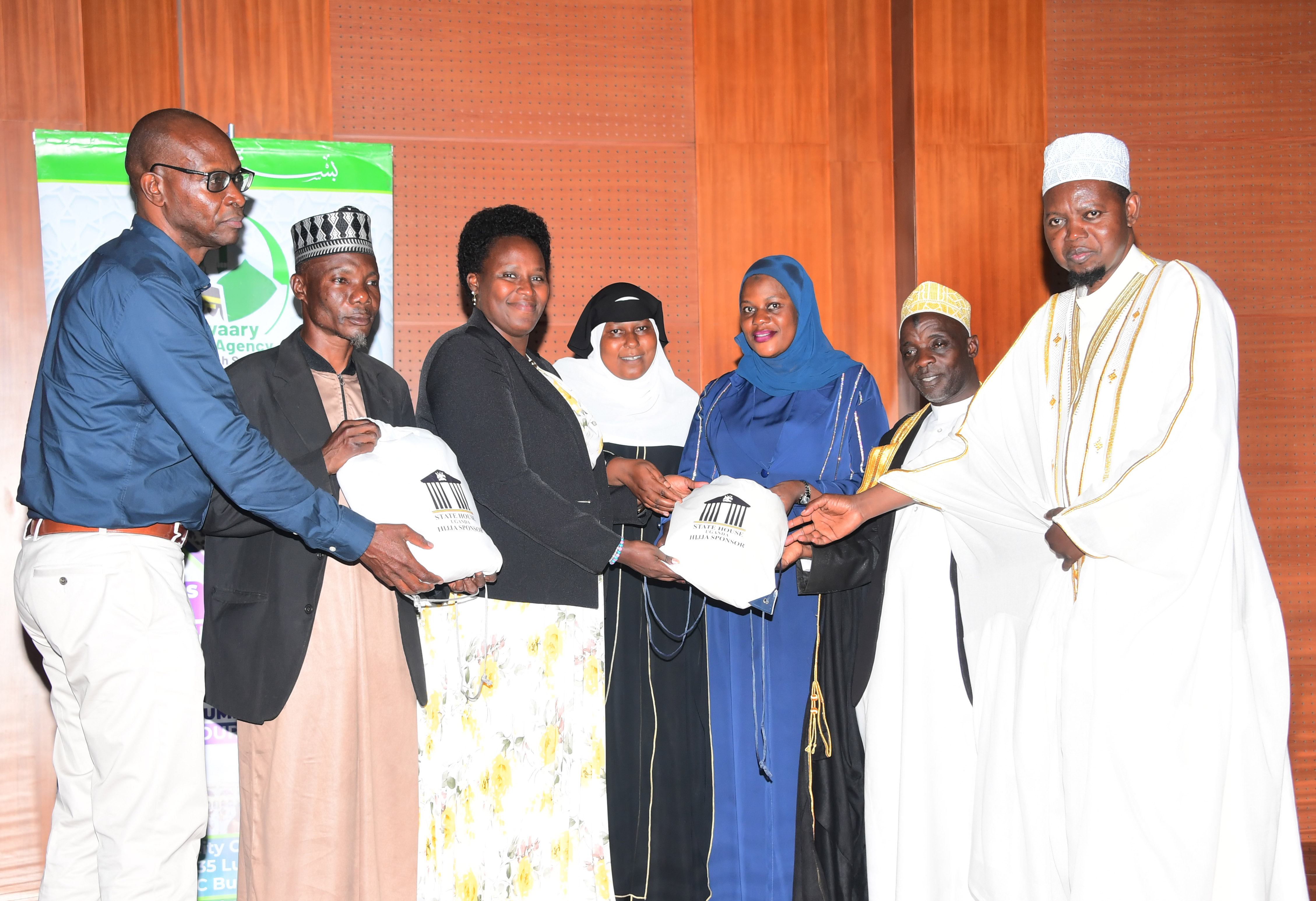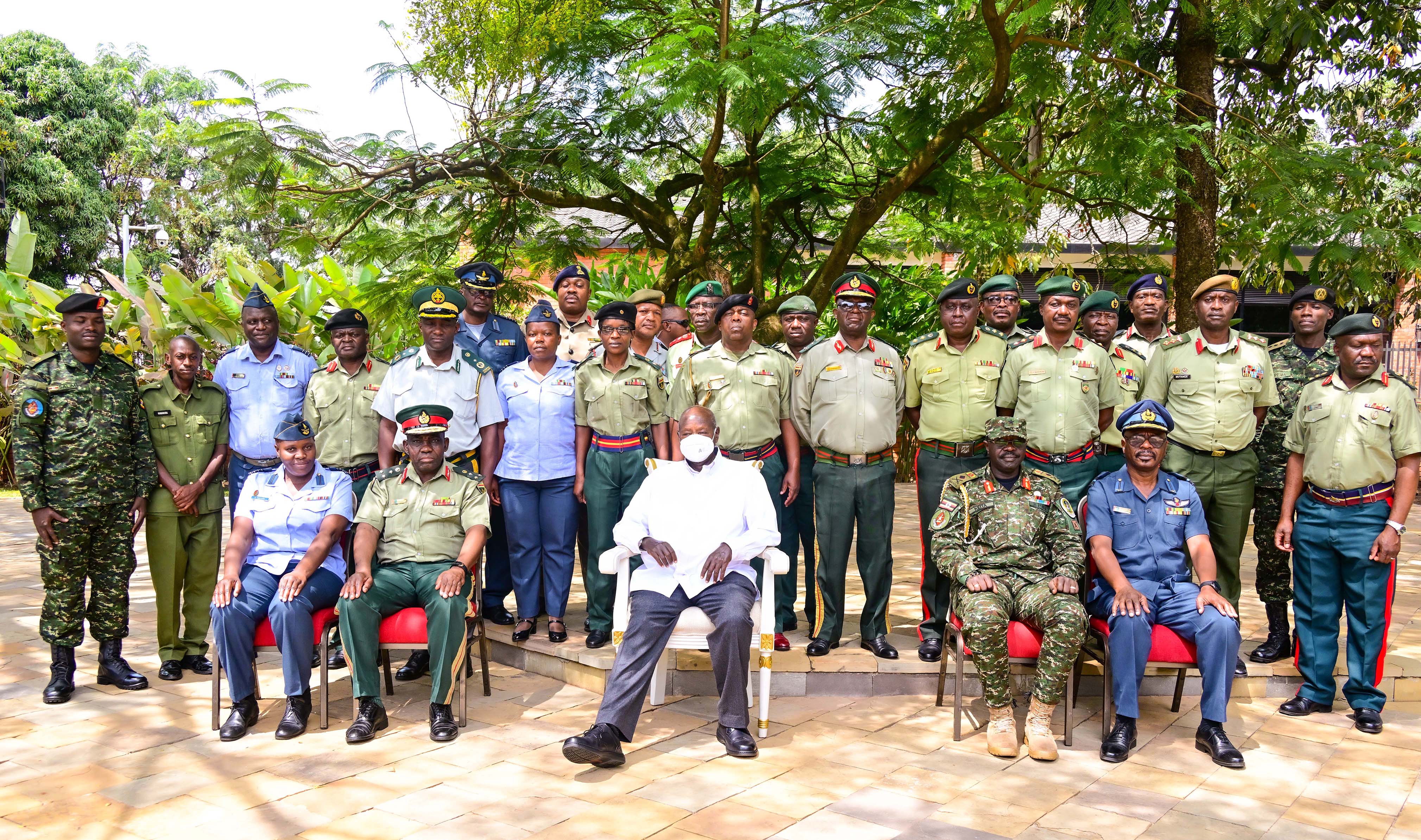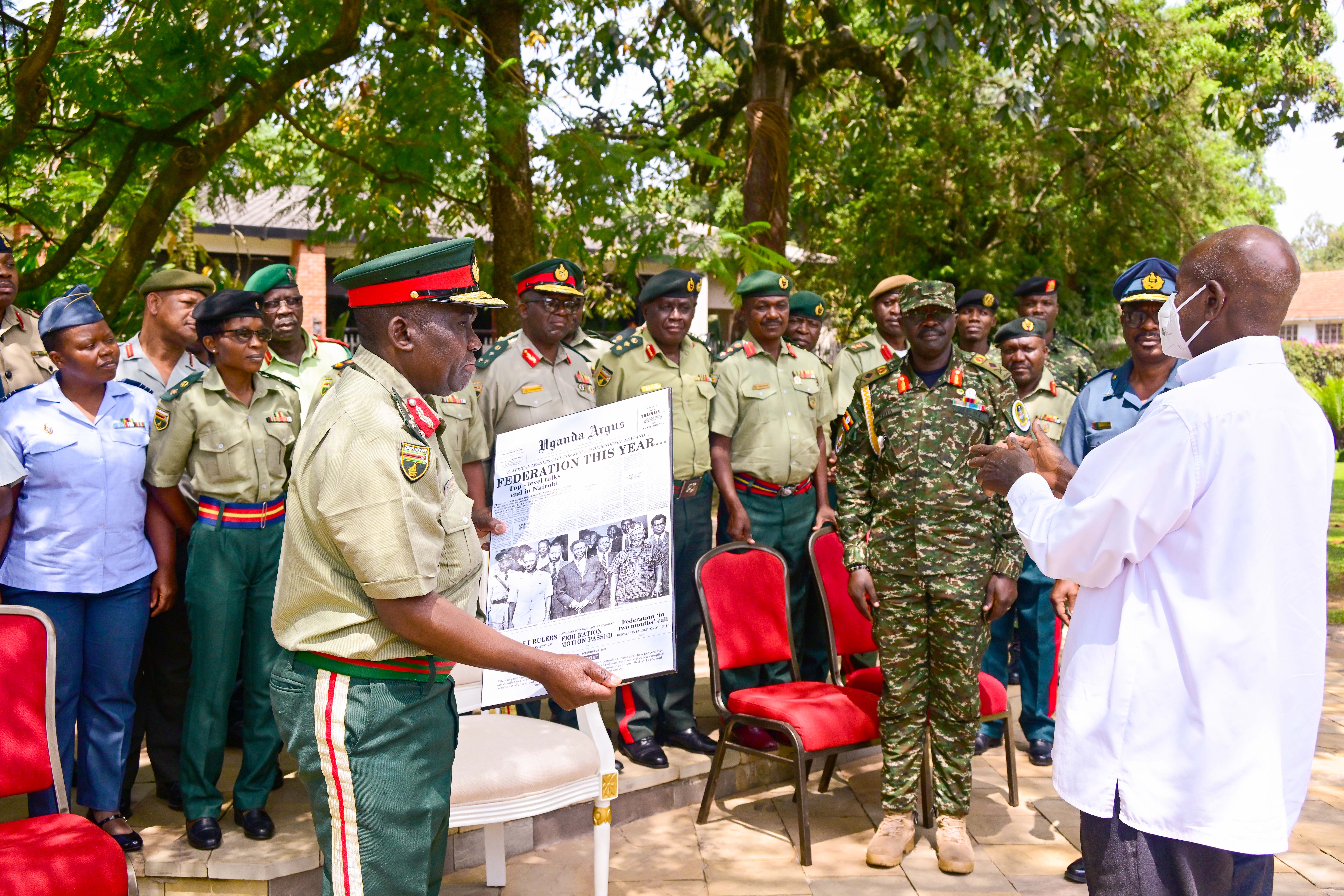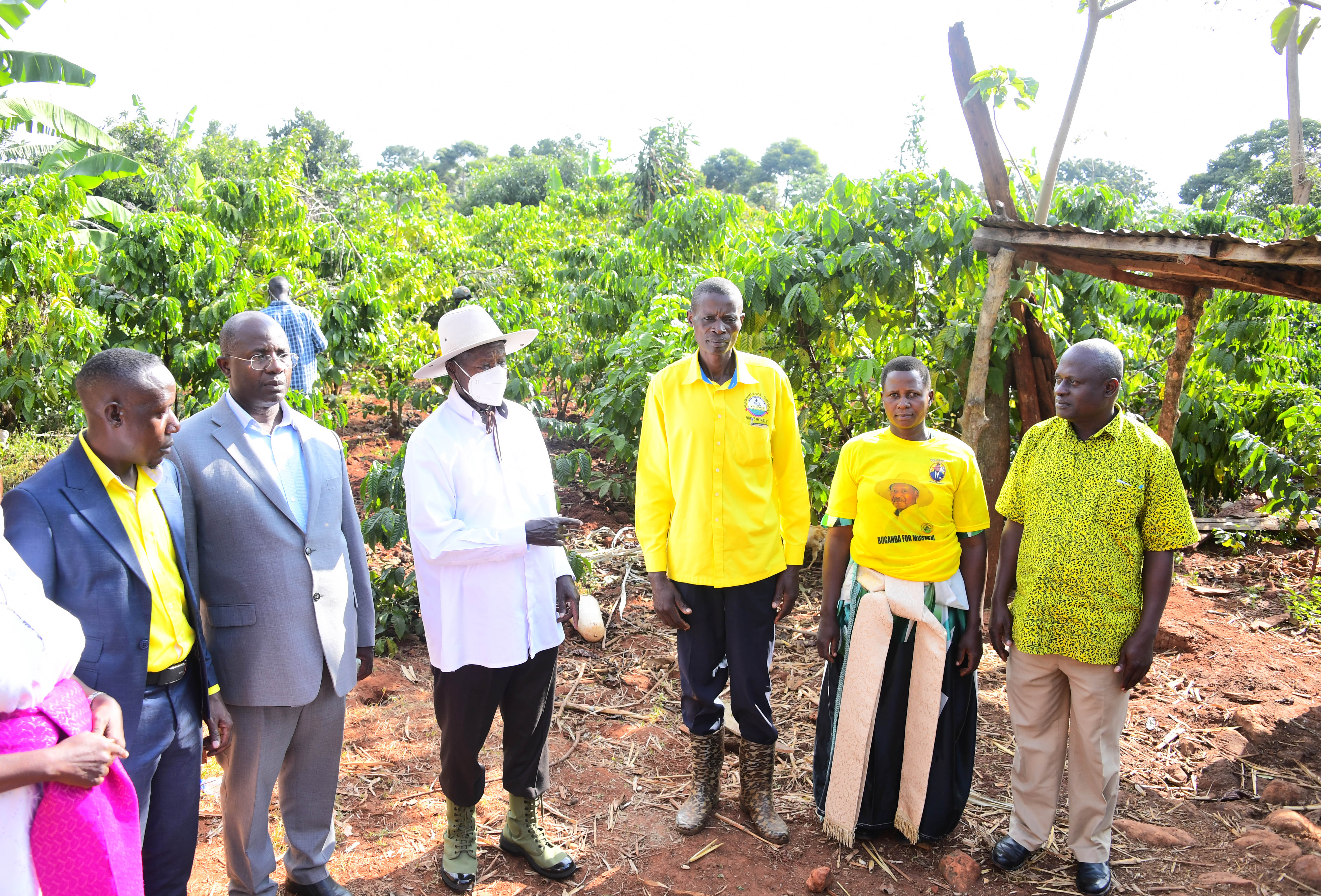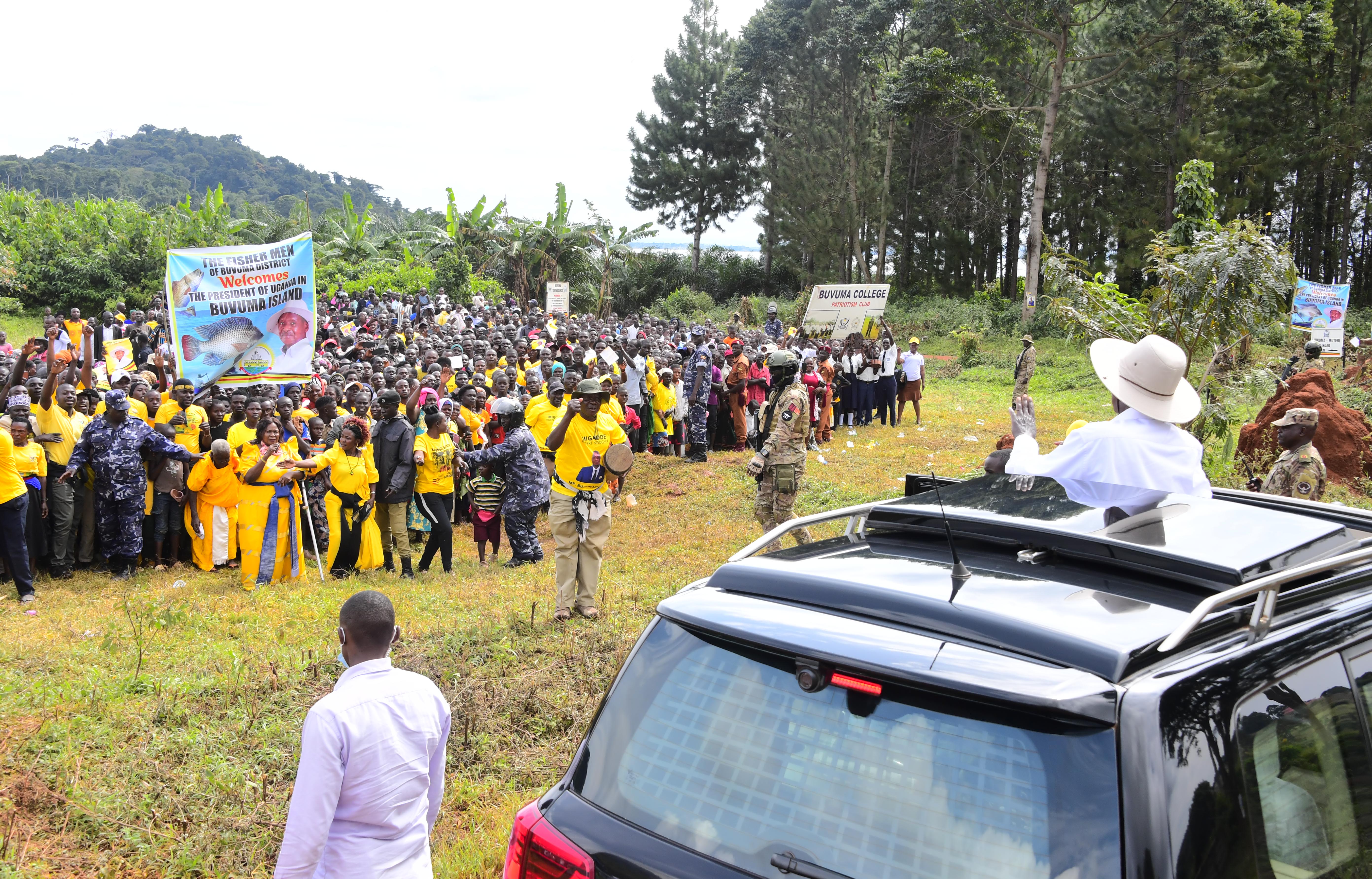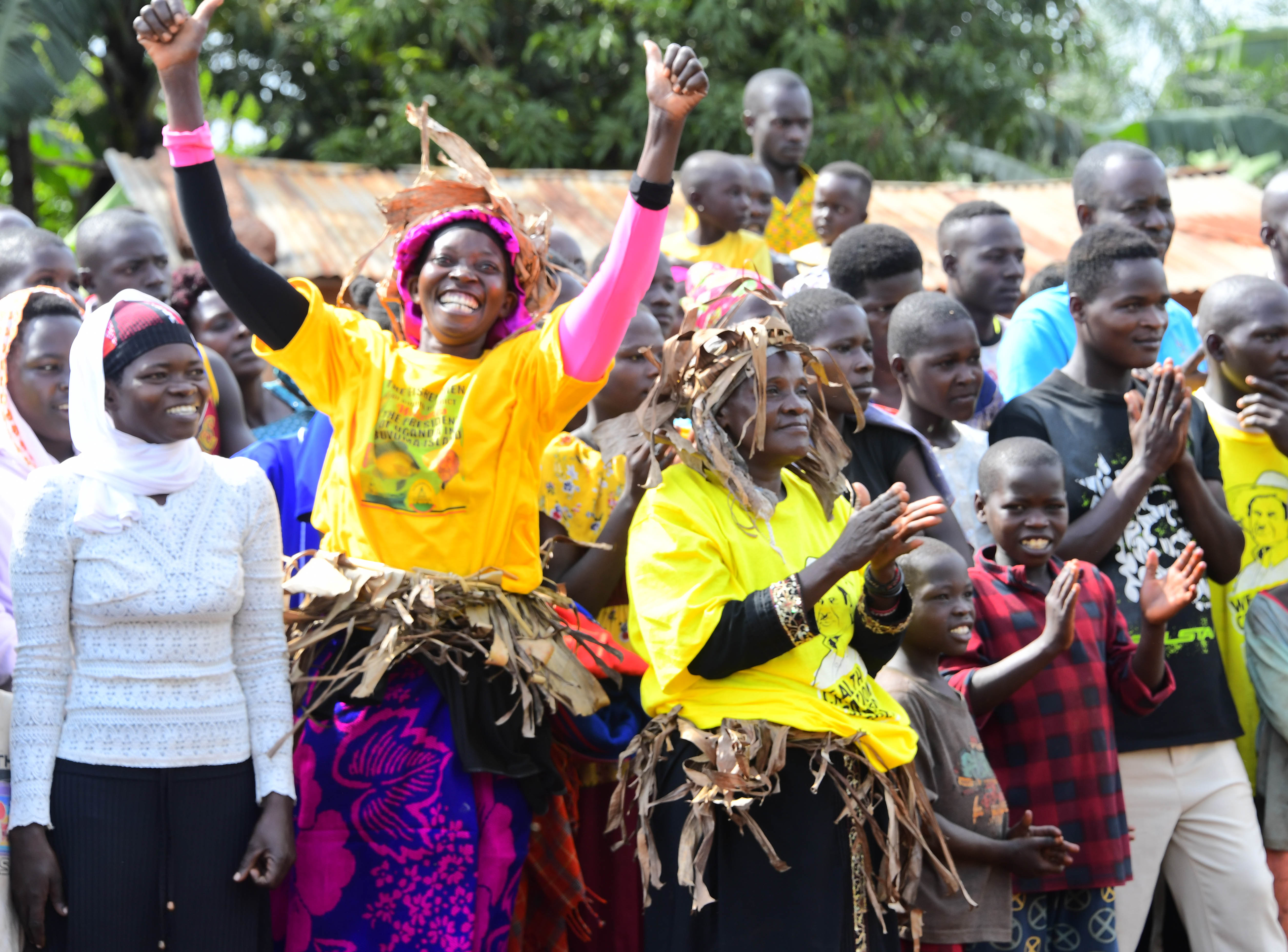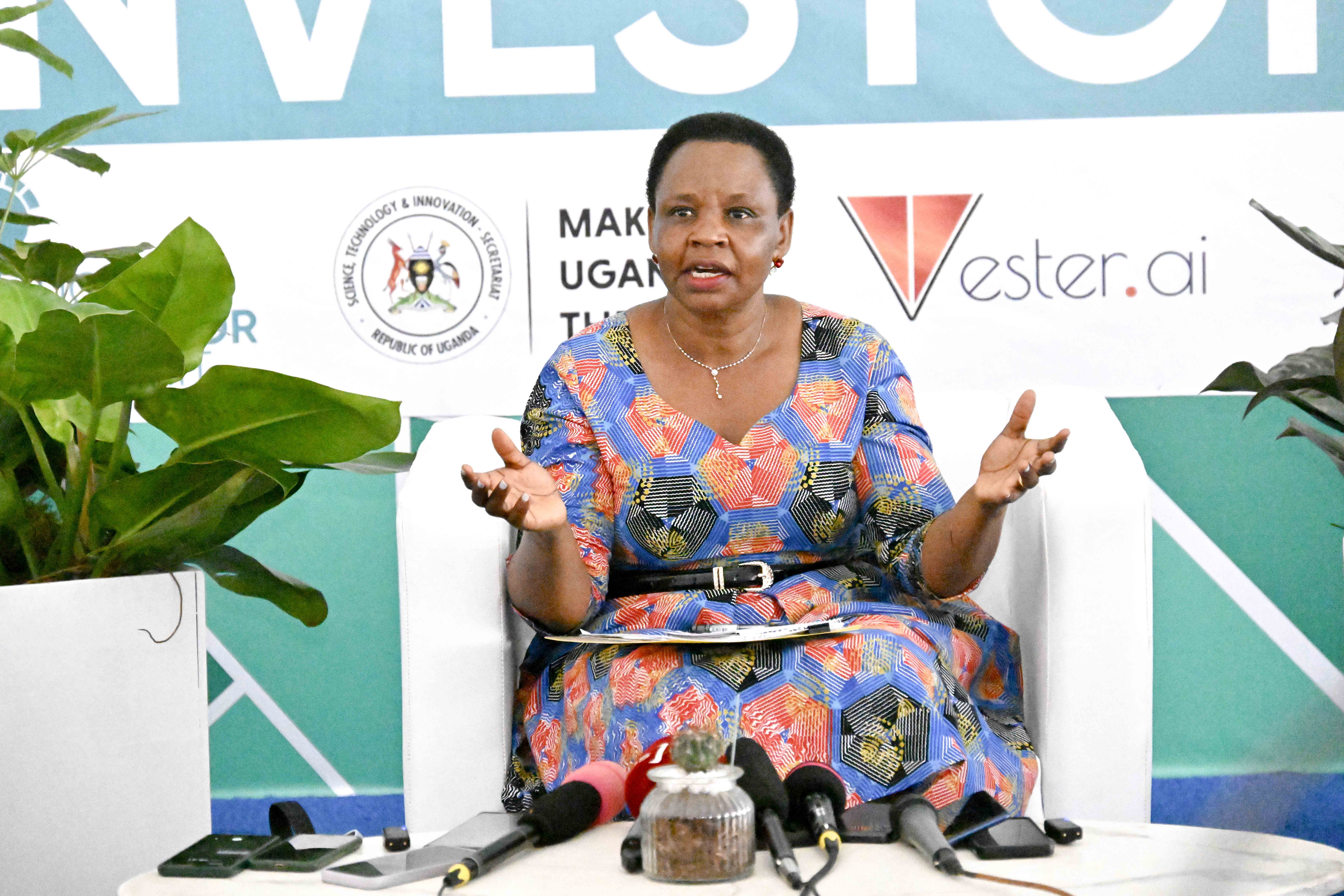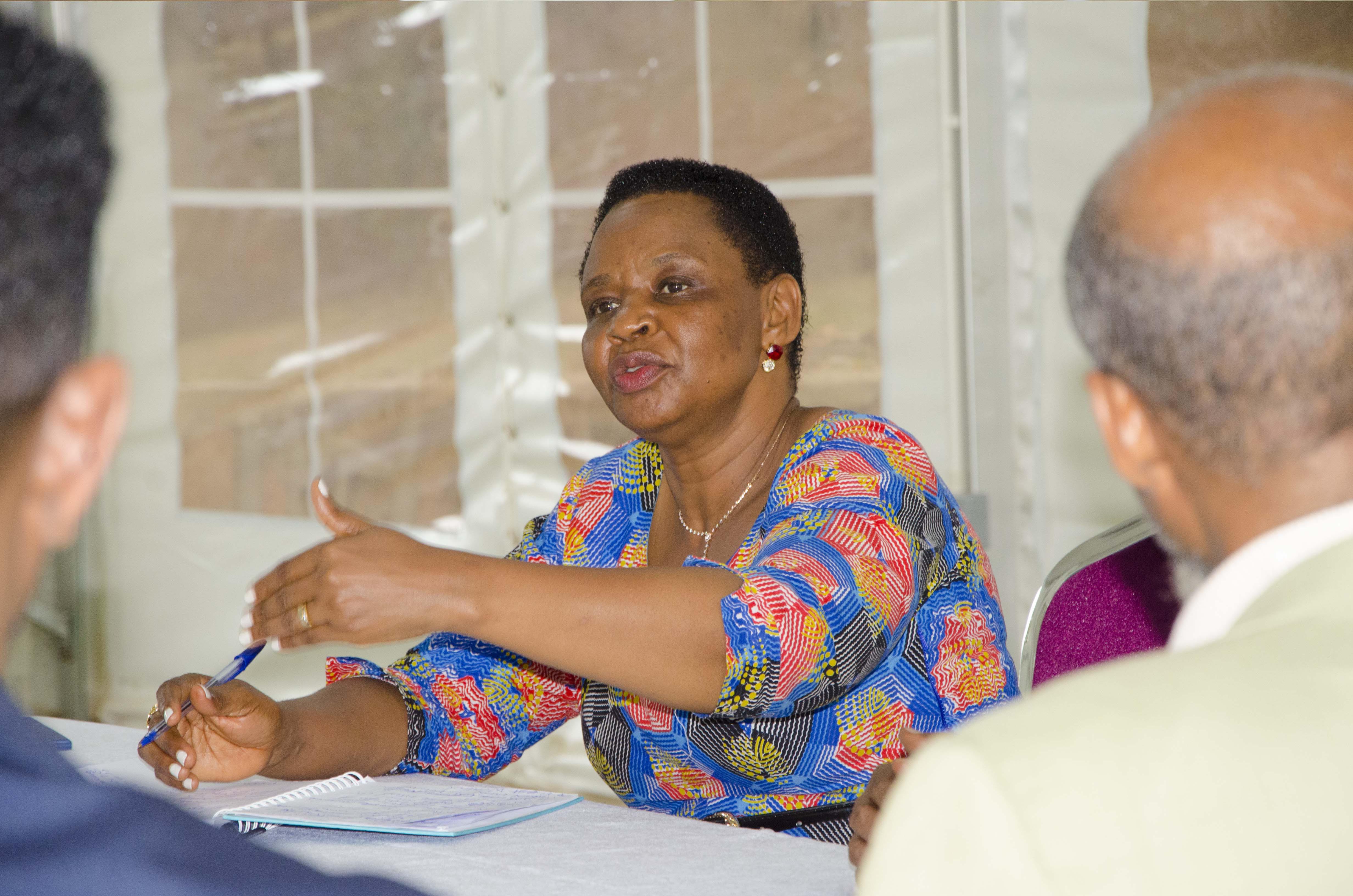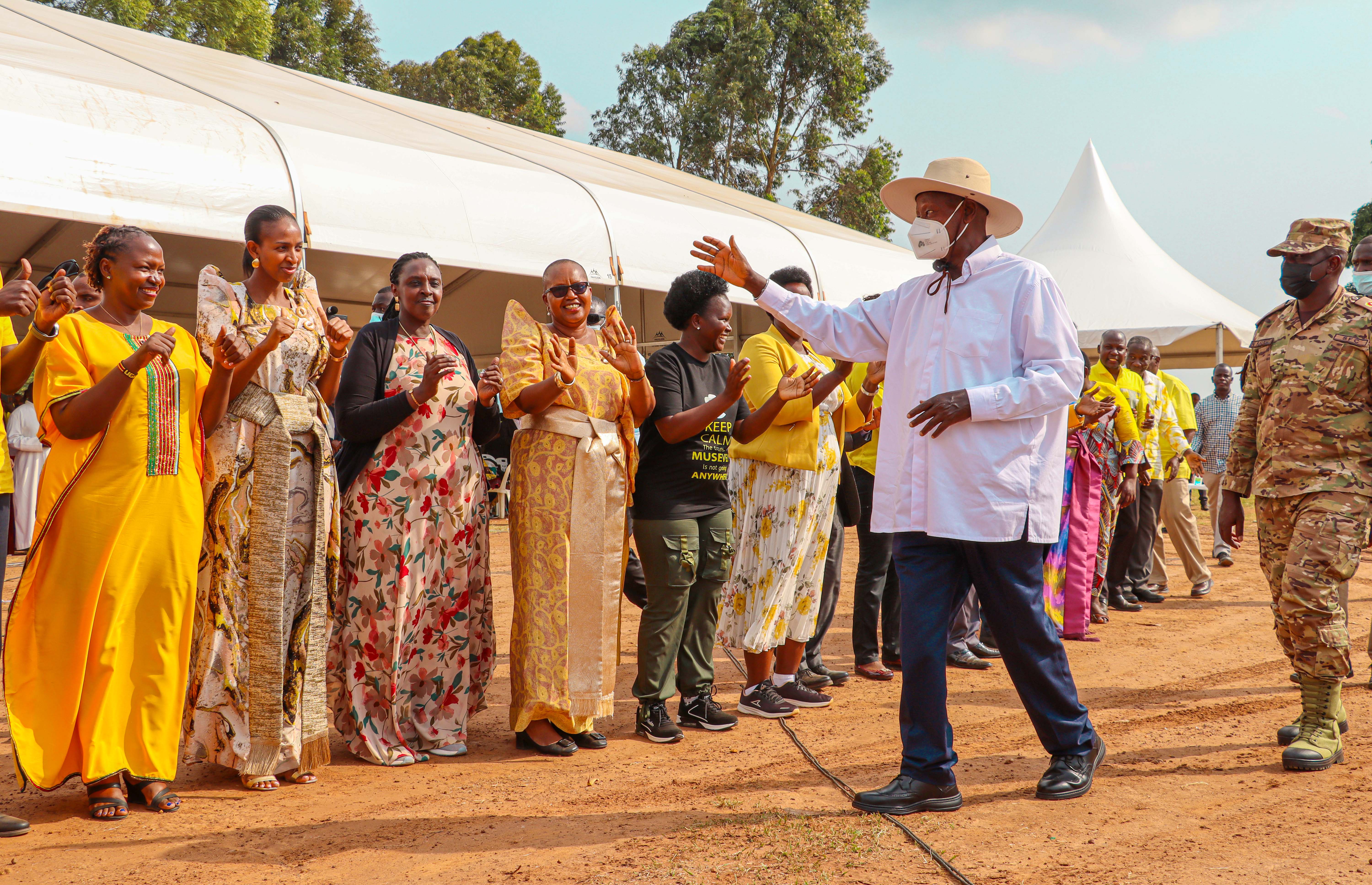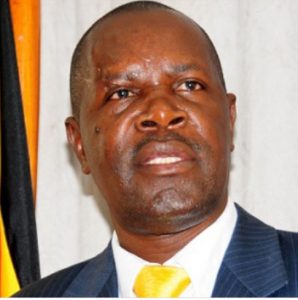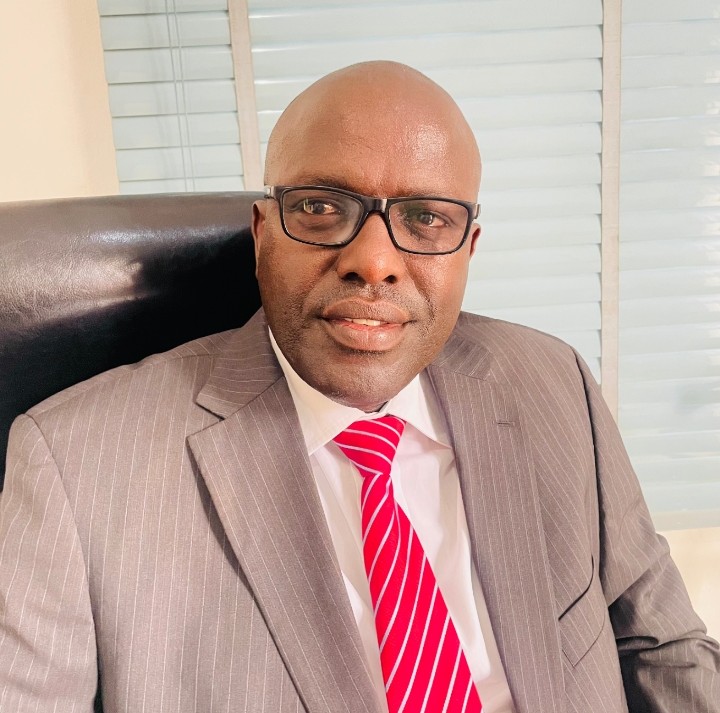PRESIDENT MUSEVENI TASKS LEADERS WITH PARISH-BY-PARISH AUDIT OF PDM IMPACT
President Yoweri Kaguta Museveni has today called on local leaders to conduct a detailed parish-by-parish assessment of households that have transitioned into the money economy under the Parish Development Model (PDM).
The President emphasized the need to shift from rhetoric to results, urging leaders to walk closely with the people they serve.
He was speaking to leaders of Greater Mpigi, comprising districts of Mpigi, Butambala and Gomba at Gombe Secondary School in Butambala District.
“I want you to go parish by parish and find out exactly how many households have moved out of poverty. This is the real challenge now. We must stop operating on assumptions. The only way to measure success is to follow up and see the actual shift in people’s lives,” said President Museveni during his second day of the PDM assessment tour in Greater Mpigi.
According to the President, it is not enough to roll out PDM funds, noting that what matters is how many families have actually changed their way of life by engaging in income-generating activities and joining Uganda’s formal economy.
“Our mission is not about distributing money. It is about transforming lives. The Parish Development Model is a tool to end poverty, but it requires close monitoring. You, the leaders, must go back to your people, track their progress, and report results. This is now a war for evidence,” the President emphasized.
President Museveni likened the current task to the Biblical parable of the lost sheep.
“We must look for the households that are still stuck in poverty and bring them along. This is not a political campaign; it is a rescue mission for our people.”
He urged local leaders to get out of their offices and walk with the people on their journey of transformation.
“Get to the field, know your people by name, understand their struggles, and guide them step by step into the money economy,” the President said.
President Museveni also cautioned leaders against promising to deliver everything at once, emphasizing that development must be prioritized.
“When we talk about development, we must know that not all sectors can be addressed at the same time. Those who claim they can finish everything at once are liars,” he said.
Drawing a comparison to the 1960s, President Museveni praised the tremendous growth in education infrastructure under the NRM government.
“In 1961, when I joined Senior One, Uganda had only six Advanced Level schools, Budo, Kisubi, Ntare, Namagunga, Gayaza, and Nabingo. But today, Mpigi District alone has 11 A’ Level government schools, Gomba has six, and Butambala has 10. That’s a total of 27 A’ Level government schools in Greater Mpigi. This is a great achievement,” he noted.
He urged leaders to do a better job of educating citizens about such national milestones.
“NRM leaders have a weakness of not teaching people about these achievements,” he added.
President Museveni further underscored the importance of preventive healthcare and personal responsibility in achieving national health.
“Gomba used to be just one district for this whole area. Now, we have more hospitals, immunization, safe water, and improved healthcare. Have you ever heard that Museveni is sick? I’ve been with you for 40 years. Most diseases are preventable,” he said.
“Girls as young as nine can be protected from cervical cancer through vaccination. Clean homes, clean water, and disciplined lifestyle. 80 percent of diseases are preventable. I have been here with you, have you ever heard that Museveni is sick? I practice what I preach.”
Turning to family wealth and succession, President Museveni warned Ugandans against dividing family property into small, non-productive plots after the death of a household head.
He proposed a more sustainable model based on structured inheritance and collective ownership.
“When the head of the family goes to heaven, don’t fragment the property. Work as a company, Sell the produce, deduct expenses, and then share profits. That way, families stay united, and the land remains productive,” he advised.
The also cautioned that traditional division of land often results in long-term family disputes and undermines generational wealth. Instead, he advocated for a shared-ownership system that mirrors models in developed economies.
The President underscored the need for irrigation and modern agricultural practices to maximize productivity.
He cited the example of Prof. Florence Muranga in Bushenyi, who increased banana yields tenfold from 5.3 to 53 tonnes per hectare through the use of irrigation and fertilizers.
“This is the transformation we want. We must use our land wisely,” President Museveni said.
President Museveni reaffirmed his commitment to expanding access to skills training, promising to establish a Presidential Industrial Skilling Hub in Greater Mpigi.
On security, he questioned the lack of police canine units in Gomba to address rising thefts.
“I don’t know why there are no canine dogs here. I’ve directed the police to investigate this and deploy immediately,” he stated.
He also revealed government plans to work on the Mpigi– Nakawuka- Kasanje–Kisubi road, as part of broader infrastructure development.
Strong stance against evictions:
President Museveni took a firm stand on land matters, vowing to protect bibanja tenants from illegal evictions by landlords.
“The Land Act is very clear. No one is allowed to evict a kibanja owner. If someone tells you to leave land you have been using, that’s abuse of your ignorance. It is illegal,” he said.
He announced that a new law would soon require tenants to pay obusulu (ground rent) through sub-county offices, denying landlords the ability to reject payments and use that to threaten evictions.
Tracing Uganda’s land woes to the colonial era, President Museveni explained that the Mailo land system emerged when British colonialists rewarded collaborators like Apollo Kagwa with large estates for helping subdue patriotic kings like Mwanga and Kabalega.
“These collaborators were given eight square miles each. That’s how the harassment of Ugandan land users began. We must correct this injustice,” the President said.
President Museveni also emphasized five pillars for national progress: peace, development, wealth creation, education, and health.
He said peace was the foundation that has enabled the construction of roads, schools, hospitals and industries.
“In 1986, Uganda’s budget was Shs 5 billion. Today, it’s Shs 72 trillion. But development takes time—even God took six days to create the world. You cannot expect everything to be done in one day,” he said.
President Museveni reminded Ugandans that while development is for all, poverty is personal and must be fought individually.
“You can have a tarmac road, but if you sit idle beside it, you’ll remain poor. Every household must take advantage of national development to improve their own livelihood,” he said.
He emphasized that the Four-Acre Model introduced by the NRM in 1996 remains the key to rural wealth, noting that it includes growing coffee, fruits, food crops, and pasture on small land, alongside poultry and piggery in the backyard.
He cited Serere’s Joseph Ijara, who started with 2.5 acres and now earns Shs 800 million in annual profits through poultry farming.
“This is what we mean by waking up. You too can do it,” he encouraged.
On his part, Alhajji Moses Kigongo, the First National Vice Chairman of the National Resistance Movement (NRM), made a stirring call for a return to the party’s founding values of discipline, humility and integrity.
Alhajji Kigongo also addressed what he described as a growing crisis of character among some NRM leaders.
“Our manners have deteriorated; we must go back to discipline. Respect the people. Treat the ordinary citizens with kindness. Explain to them what you have achieved, don't let your behavior betray your progress,” he advised.
In a pointed critique, he warned that the corrupting influence of money had changed the moral compass of some members of the party.
“Let money not change you. Long ago, NRM leaders were known for good manners and discipline. Today, too many have become liars, the NRM used to be distinguished by its integrity. That must return,” he said.
Alhajji Kigongo also urged internal reconciliation and unity, calling for restraint in leadership contests.
“Why should six people be standing for one position in one party? Sit down, reconcile, and decide together. We need unity, not division,” he said.
The veteran leader reminded attendees that the strength of the NRM has always come from its principled foundation.
“Let us change our ways. The NRM stood and succeeded on discipline. That is what will carry us forward,” he concluded.
In an address delivered on behalf of the leaders of Greater Mpigi, the LC5 Chairman of Gomba District, Mr. Geoffrey Kiviiri, hailed President Yoweri Museveni for what he called a clear and deliberate effort to pull millions of Ugandans out of poverty and into the money economy.
Reading from a Memorandum of Understanding signed by leaders from Gomba, Mpigi, and Butambala, Mr. Kiviiri praised the President for introducing game-changing government initiatives, including the Parish Development Model, Youth Livelihood Program, NAADS, UWEP, and Emyooga.
“These programs are not just policy on paper, they are the reason a mother in Gomba now owns a goat farm, why a youth in Butambala has a welding shop, and why a family in Mpigi is no longer surviving on subsistence alone. Mr. President, you have shifted the ground beneath our feet,” he said.
Mr. Kiviiri noted that across the region, which is home to more than 672,000 people, 65% of the population has now joined the money economy.
“There’s a visible difference; our people are no longer trapped in that cycle of poverty. They are working, saving, producing and they have entered a new era,” he said.
He pointed to the Parish Development Model as a standout success, saying that in just three years, billions of shillings have flowed into the region, channeled through community SACCOs: 49 in Gomba, 25 in Butambala, and 56 in Mpigi.
Mr. Kiviiri confirmed that all the funds allocated for this financial year had already been received.
“We are close to achieving 100% household coverage. This money has not only arrived, it’s working. It’s building businesses. It’s restoring dignity,” he said.
However, he did express concern over the performance of the Emyooga funds, admitting that the impact has not matched that of PDM.
“Let us remember, this money is not to be eaten, It is to initiate projects that generate wealth and should be returned after two years so others can benefit. That is how we create a cycle of progress,” Mr. Kiviiri warned.
Beyond economic reform, Mr. Kiviiri applauded the President for investments in critical infrastructure.
He also lauded the Presidential Industrial Hubs, calling them a light for the youth who had fallen through the cracks. According to Mr. Kiviiri, 243 young people from the region have so far graduated from the Industrial Hub with practical vocational skills.
“These are children who dropped out of school, who had been written off. Now they are carpenters, tailors, electricians. They are useful to their country. That is the President’s legacy,” he said.
Also in attendance were Hon. Matia Kasaija, the Minister of Finance, Planning and Economic Development, Hon. Judith Nabakooba, the Minister of Lands, Housing and Urban Development, Hon. Evelyne Anite, the Minister of State for Investment and Privatization, the NRM Deputy Secretary General, Hon. Rose Namayanja, local leaders, religious leaders, among others.
2025-06-18
